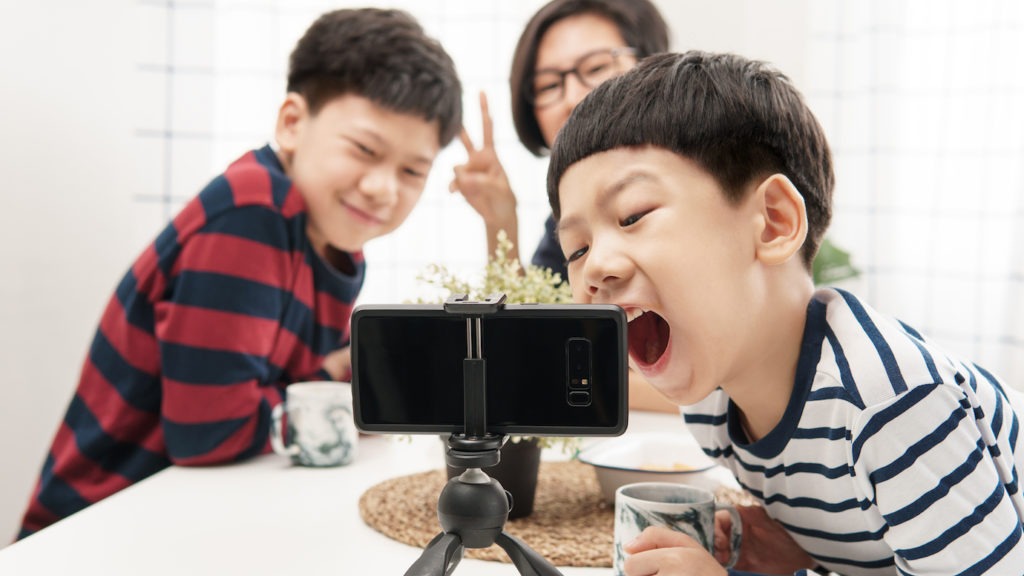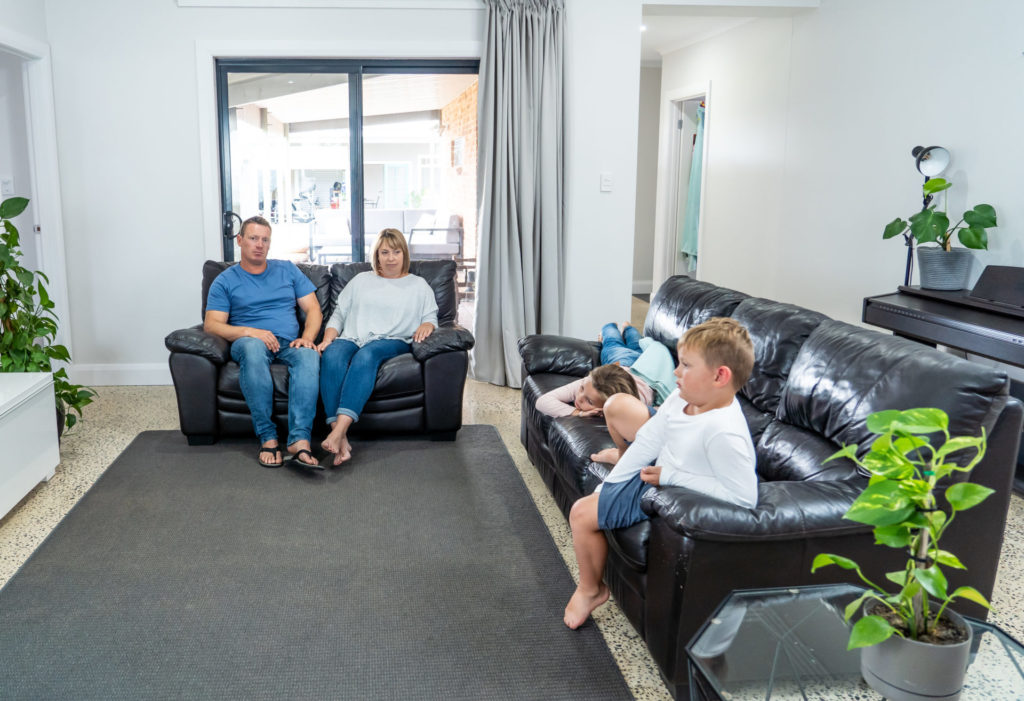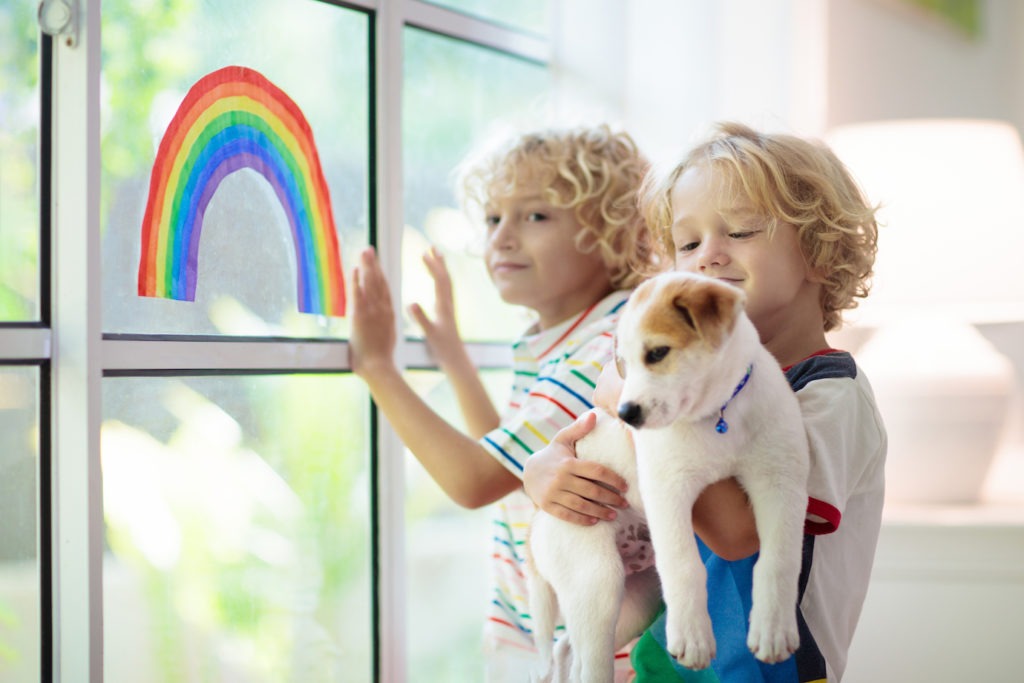A lot has changed in family homes across Australia over these past few weeks as parents and carers have had to quickly adapt and adjust to having kids at home, all day and every day.
All parents have stories to tell regarding how they’ve been managing (or not), and our kids will no doubt remember this time for the rest of their lives.
But on Women’s Agenda we wanted to try and figure out some general trends on how parents have been coping, and document what we learned. So midway through April, we asked 1257 such parents to share just what the juggle’s been like at home, and any tips and strategies they’ve applied to help get through the days. Our report on the survey is available here.
What we found was that screen limits have been adjusted, physical activity is down, and parents have been getting creative in using some of the simpler options (like cooking, board games and gardening) to help entertain the kids at home.

But more concerningly (and in many ways, this was to be expected) we found that parents are feeling overwhelmed. They are struggling with the juggle, which in many cases includes trying to maintain paid work despite losing access to the regular care and schooling structures they had in place. They have concerns for their kids’ futures. They’ve lost access to regular grandparent care. They’re feeling exhausted, and their mental health is suffering.
And as much as we want to think co-partners (if they are available) are helping out more than ever before, that’s not always the case. One-third of respondents with a co-parenting partner at home said their partner is not helping out more than they were previously. Around one-quarter of respondents report having no partner or carer with them at home the majority of the time.
Of the 1257 respondents surveyed:
- 64% said they are feeling more overwhelmed by the ‘juggle’ than they were prior to isolation
- 64% again said they are personally ‘feeling more exhausted’ than prior to isolation
- 57% said their mental health has been affected as a result of isolation
- 40% said they have concerns for the mental health of their children that they didn’t have prior to isolation
- Just 41% said they were feeling optimistic about what’s to come following this period of isolation, with 23% disagreeing with the statement
Exercise and screen time
Exercise and physical activity has taken a step back for kids, and their parents.
Although Australians have been able to continue to exercise outdoors during isolation, access to such opportunities is not equal with many families living in apartments and/or having limited access to backyards, parks and other spaces.
One quarter (26 per cent) of parents and carers have been unable to maintain or start some form of exercise during this period. Fifty-nine per cent of respondents said their kids are getting less physical activity than they were prior to isolation, with 29 per cent saying it’s remained ‘about the same’ and 12 per cent saying their kids are getting more. Sixty-five per cent of respondents said they have adjusted screen time limits during isolation.
The role of grandparents
This period has proven just how vital grandparent care is for parents and for ensuring the country’s entire systems of care actually works. Many parents rely on some kind of regular care in order to manage their paid work and run their households. And many have had to quickly adjust to not having such care readily available during isolation.
A massive 40 per cent of our respondents said they were receiving some kind of regular help from grandparents prior to isolation that they have since stopped. Just five per cent indicating they are still receiving this kind of regular help.

There were some positives to glean from the research. Fifty nine per cent of respondents agreed their kids are ‘mostly enjoying being at home’ and almost half (48 per cent) said they are playing more offline games as a family than they were previously. We found dozens of activities that families said they are doing now that they weren’t doing prior to isolation — including gardening, exercising in the front yard, board games, cooking, and more.
So what are parents doing to cope with this next-level juggle?
We asked our respondents to share any tips and strategies to help, and received over 1000 responses.
Below, we’ve compiled a number of key trends that came up frequently in the responses:
Lower the expectations. This period is far from normal, it’s an emergency. Lower your expectations as a parent or carer regarding what success looks like right now — whether that be on paid work, schooling, housework or something else. Exercise, if and where you can. Take the pressure off yourself to be ‘productive’ or to ‘perform’ during this period.
Maintain some kind of regular routine. That may include getting out for a walk first thing in the morning, keeping to some kind of daily schedule, setting clear meal times etc. Get the kids involved in this routine, write it down if necessary. Get everyone in the home to have a clear idea of what comes next. Consider regular ‘to do lists’ that kids can tick off on to feel a sense of accomplishment throughout the day.
Get talking with family members. Get everyone on board the daily schedule. Communicate constantly. If the kids are old enough, share what is and isn’t working, help them understand just what the ‘juggle’ involves during this period and why everyone needs to work together.
Adjust screen limits. We found the majority of respondents have adjusted screen time limits during this period, and many more parents and carers noted how this has been necessary in order for them to get through the day — including by establishing periods of screen time when the parent/carer can complete their paid work. This period of isolation will not continue forever, those screen limits can always be returned as school resumes and isolation eases.
Pick your battles. Encouraging/motivating kids to get through their schooling at home is tough. Let them take the breaks from school work that they need, decide how far you need/want to push them before it turns to conflict. Give kids some greater autonomy during this time and see how they want to learn and explore the world.
Take shifts with a co-parenting partner, if you have one available. A number of respondents shared how they are doing shifts in order to supervise remote learning and tag team on managing their paid work.
Help manage your kids’ wellbeing. Schedule regular video chats with their friends. Hug them. Communicate with them. Ask them questions about how they’re feeling and personally coping. Limit how much news media is being heard and seen throughout the house. Be prepared to answer questions and respond to their fears.
And a couple of specific ideas:
Create a jar of activities you want to do as a family after isolation. You could write these down as they come up, so you all know there’s so much to look forward to on the other side. This will also help form a great ‘to-do and see list’ once restrictions ease
Journal your time in isolation as a family. This is a historic moment that your kids will remember for the rest of their lives. Consider putting a journal or some kind of book together to document this time.
Pack lunches and snacks in the morning, as if they are going to school. This may help create a sense of routine, and possibly prevent endless requests for food throughout the day.
Get grandparents or other loved ones to read via Zoom. This can provide parents with a much-needed break and open up another opportunity for kids to interact with their grandparents (and get reading) online. Consider reading plays or scripts, so grandparents and kids can play their own ‘part’.
Sit down each night or every week to plan out your ideal day together. This may involve setting a clear schedule for the day or week ahead, establishing some regular exercise you hope to do as a family, and/or even thinking up a family goal such as cooking a new meal together, completing a puzzle, learning a new trick etc.
We’ll be sharing more from what we’ve learned, including some of the tips and tricks shared, on Women’s agenda and in our new JuggleHood newsletter, a weekly wrap on managing this next-level juggle and beyond. Subscribe here.


